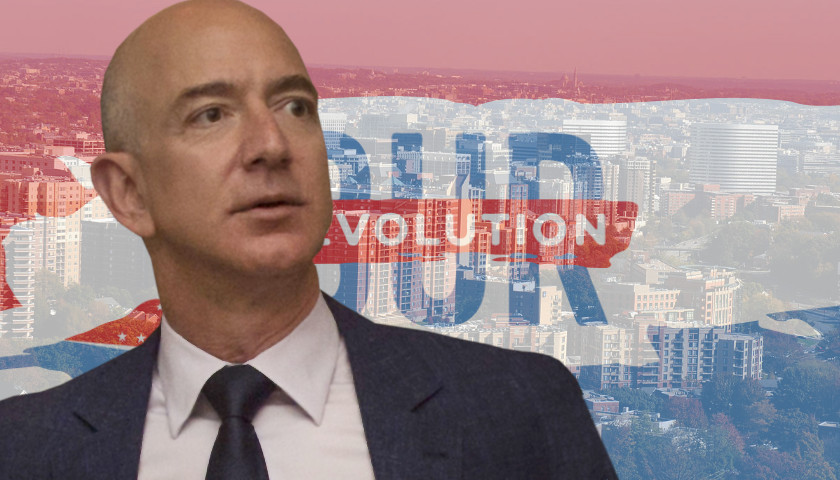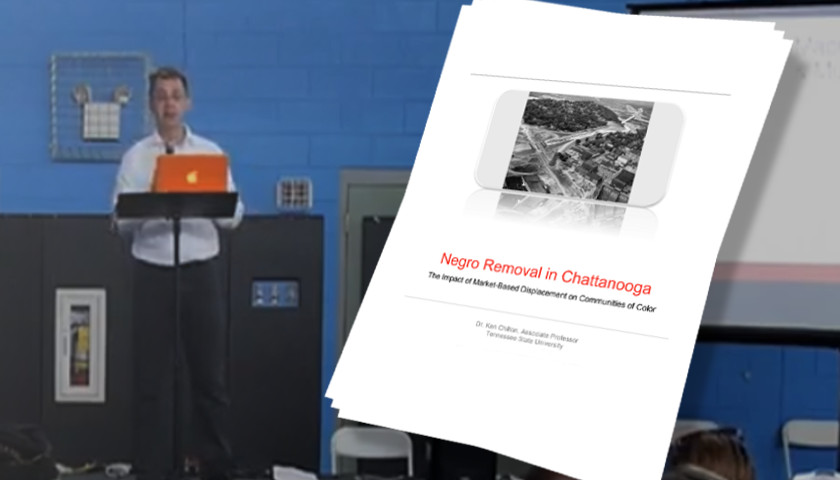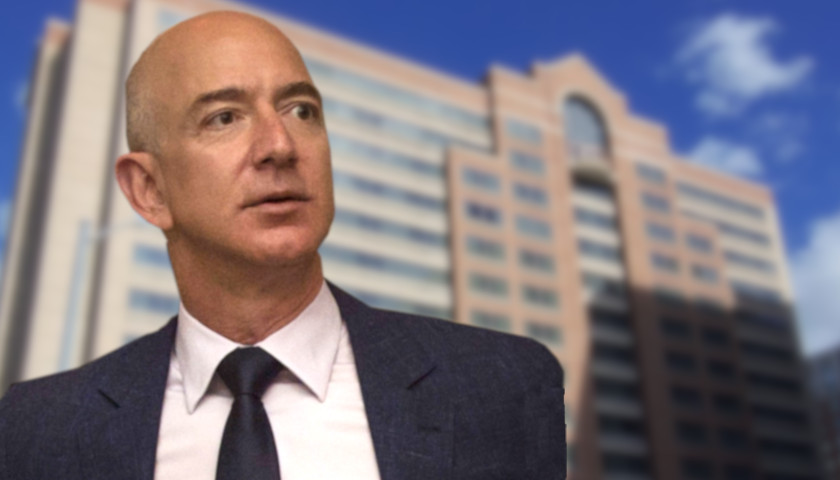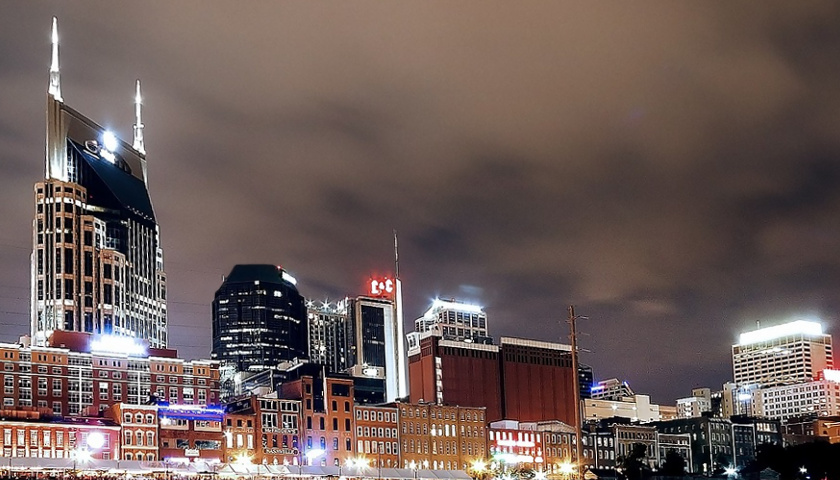Monday morning on The Tennessee Star Report, host Leahy to explain what he found out when visiting his childhood home and church in Munnsville, New York over the weekend.
Read the full storyTag: gentrification
Virginia Residents Plan Demonstration to Stop Arlington’s Planned $23M Tax Break for Amazon Headquarters
The backlash that prompted Amazon to discard its New York HQ2 headquarters plans like a rotten apple has emboldened critics of the tax deals being offered for the Virginia headquarters site. Amazon’s New York announcement, ironically made on Valentine’s Day, showed there was no love lost between the e-retailer and politicians and activists who bemoaned nearly $3 billion in tax incentives for the firm, The Tennessee Star reported. Amazon promised 25,000 jobs and $2.5 billion investment in offices. Amazon said it still planned to build an operations center in Nashville. The company was promised $15 million from the City of Nashville and up to $102 million from the state for 5,000 jobs. Now some in Virginia are setting their sights on what they say is not a Prime deal. Roshan Abraham, with Our Revolution Arlington, one of several anti-tax-incentive groups in Virginia, said the Arlington County government should vote down the $23 million tax deal being offered to the world’s largest e-retailer, according to a story by Washington Business Journal. Virginia Gov. Ralph Northam has signed a deal to give Amazon up to $550 million to create 25,000 jobs or $750 million for 37,850 jobs, the Journal said. Virginia critics also…
Read the full storyActivist Group Blames Chattanooga Downtown Revitalization for Pushing More than 2,500 Blacks Out of Neighborhoods, Calls for Community Contracts With Developers
Activist group Chattanooga Organized for Action released the Jan. 12 report, titled, “Negro Removal in Chattanooga.” The report is available here. Dr. Ken Chilton, an associate professor in the College of Public Service and Urban Affairs at Tennessee State University, is the author. (Chilton has been involved in the Williamson Strong group.) COA’s website says it is a “community organizing non-profit that works to initiate, support, and connect popular grassroots organizations for the purposes of advancing the local social justice movement. We’re a multi-issue organization, and we seek to eliminate the oppressive conditions that cause suffering so many of our city’s poor and marginalized people.” According to the report, Chattanooga’s gentrification has not been an accident, blaming the city’s downtown renovations, yet not blaming any one person or group. Michael Gilliland, COA’s board chair, wrote, “Our development model has been structured on inequality. Housing, amenities, and public support have centered on attracting a higher socioeconomic class of people-wealthy, professional, overwhelmingly white-regardless of the effect on working class and historically marginalized communities that have called Chattanooga home.” The report says the much-lauded public-private partnership that revitalized the downtown failed to benefit blacks. Between 2000 to 2017, the market-based renewal resulted in the…
Read the full storyAmazon’s New Move Will Gentrify Neighborhoods
by Alexandra Staub When large companies move into an area, politicians often proclaim how the new business will create jobs, increase tax revenues, and thus lead to economic growth. This is one reason local governments offer tax incentives to businesses willing to move in. Amazon’s decision to locate offices in Long Island City across the East River from Manhattan, and in Crystal City on the outskirts of Washington, D.C., follows this pattern. The New York location borders the largest low-income housing area in the United States, with mostly African-American and Hispanic residents whose median household income is well below the federal poverty level. These people, local politicians claim, will benefit from Amazon’s move to the neighborhood. However, when large companies with an upscale and specialized workforce move into an area, the result is more often gentrification. As economic development takes place and prices of real estate go up, the poorer residents of the neighborhood are forced out and replaced by wealthier ones. Is such a market-driven approach that accepts displacement ethically justifiable? And how do we even measure its costs? Can gentrification ever be ethical? Although politicians don’t typically frame gentrification as a question of ethics, in accepting…
Read the full storyNashville Becoming ‘Chic Urban Playground for the Wealthy,’ Vanderbilt Professor Tells Wall Street Journal
The Wall Street Journal has taken notice of how Nashville is becoming gentrified and is in danger of becoming a “chic urban playground for the wealthy.” James Fraser, an urban studies professor at Vanderbilt University, told The Wall Street Journal the city needs 30,000 more units of affordable housing and should spend $1 billion to meet the demand. Working people are being pushed to outer suburbs and rely on buses to reach their jobs, while wealthier people are moving into inner neighborhoods, he said. Affordable housing has long been a benefit of living in the South, said Laurel Graefe, deputy regional executive of the Nashville branch of the Federal Reserve Bank of Atlanta. While corporate incentives and low taxation are still attractive, housing demand has outstripped supply, raising prices. From 2008 to 2018, housing values, based on a weighted measure of all transactions in the housing market, rose 75 percent in Nashville, compared with 33 percent in Charlotte, according to the Brookings Institution. The Wall Street Journal story discussed the trend of tearing down older homes and building “tall skinnies”—multistory homes geared toward wealthier home buyers. Much of the issue is from rapid economic growth, the story says. The Nashville…
Read the full story




